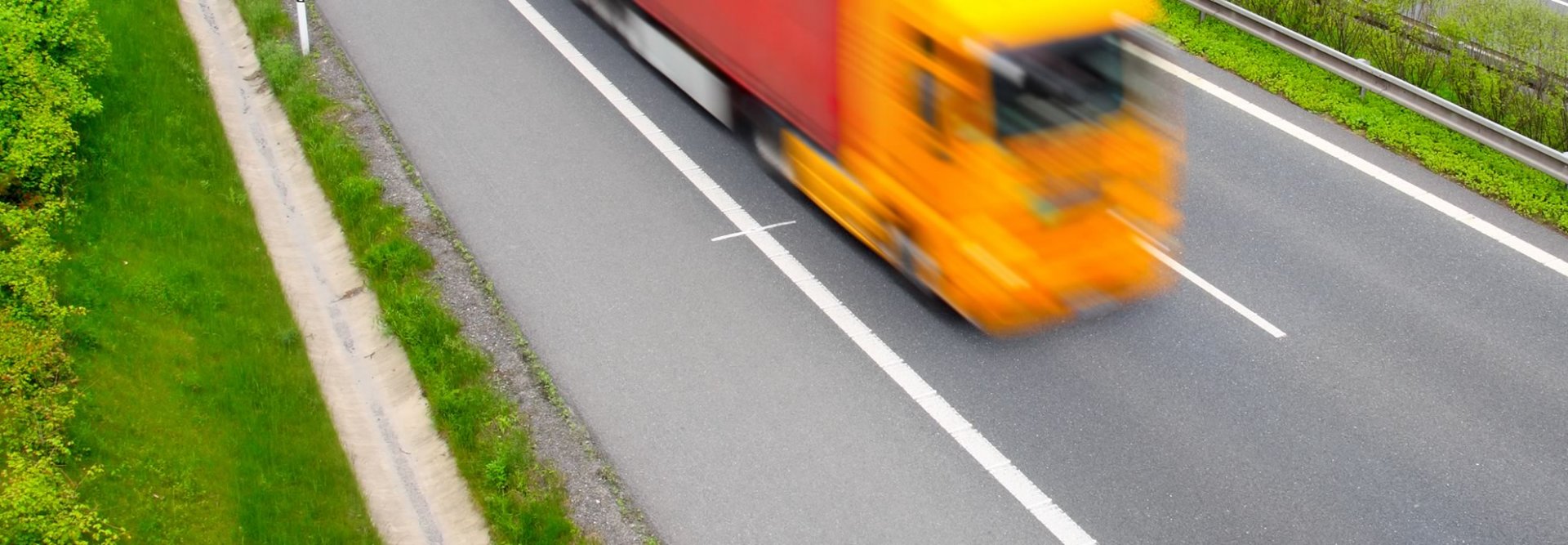Patinter believes that citizenship and social responsibility are an important asset for the company. Its activities in this area are oriented towards the promotion of activities that cover the surrounding community, stakeholders and employees, transmitting them the importance of the sense of freedom, justice, dignity and solidarity, which are also part of the company's values.
Patinter attaches a high importance to all activities within its corporate social responsibility policy and as an organization aims to make a positive contribution to Society, Economy and Environment. An example of this is the Patinter Cares programme, which consists of a set of welfare, education, culture, sports, volunteer work and social solidarity actions with target audiences.
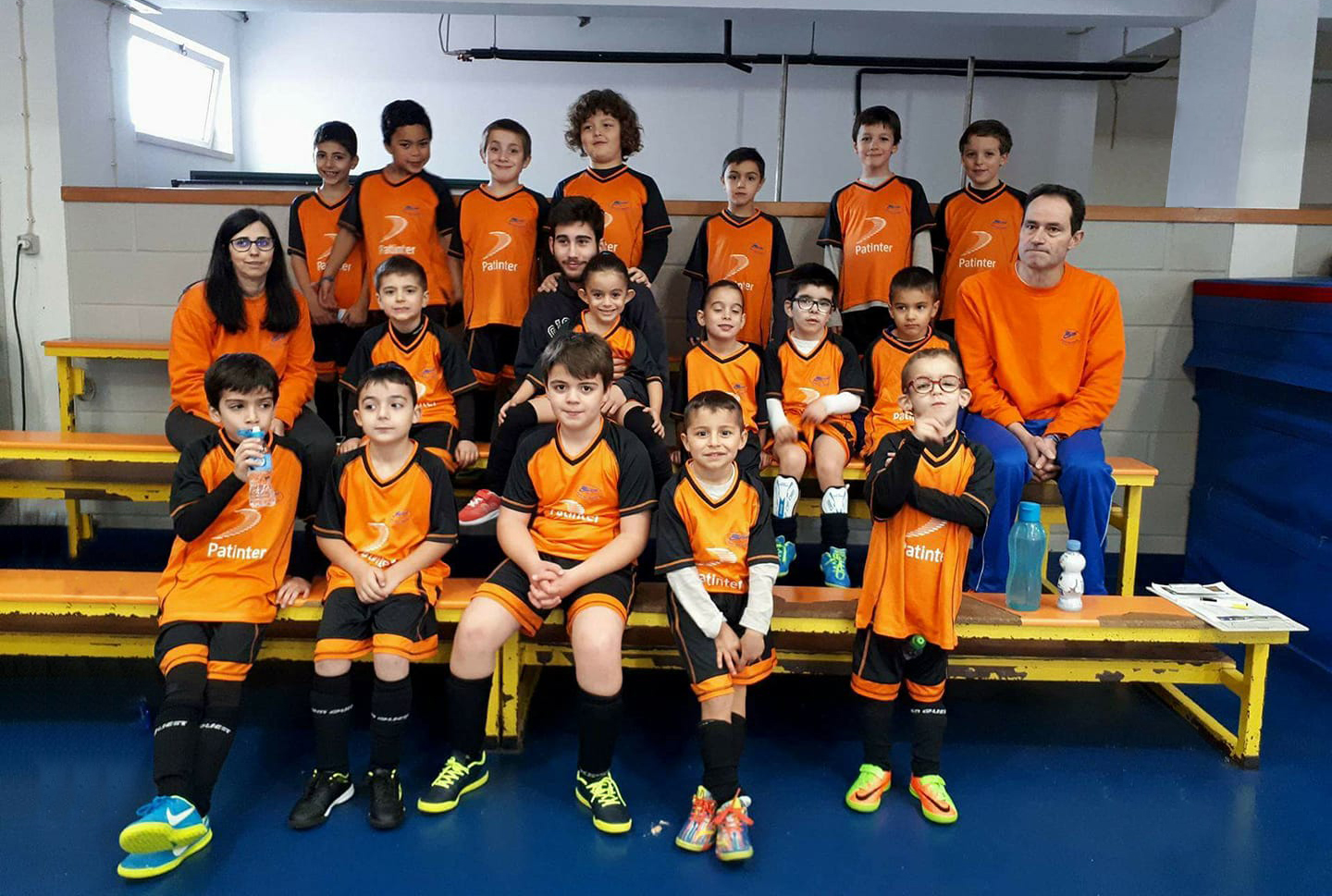
+Sports
Patinter - Commitment to Sport, Training, and Community
At Patinter, we believe that sport is a driving force for personal and social growth. That’s why we invest in sports projects that stand out for their organisation, innovation, and positive impact. From roller hockey to football, our collaboration extends across the country, promoting not only sports participation but also a culture of excellence and continuous development.
We particularly value partnerships with training schools located in the interior of the country, especially those situated close to our facilities. By supporting these institutions, we recognise their crucial role in nurturing young talent and strengthening local communities. This strategic alignment enables us not only to boost sports development but also to reinforce our commitment to social responsibility, contributing to the sustainable progress of the regions in which we operate.
Our commitment goes beyond financial support; it involves creating conditions that promote access to sport, well-being, and education for young people. Through these initiatives, we aim to cultivate values such as discipline, teamwork, and resilience, which are essential for success both in sport and in life.
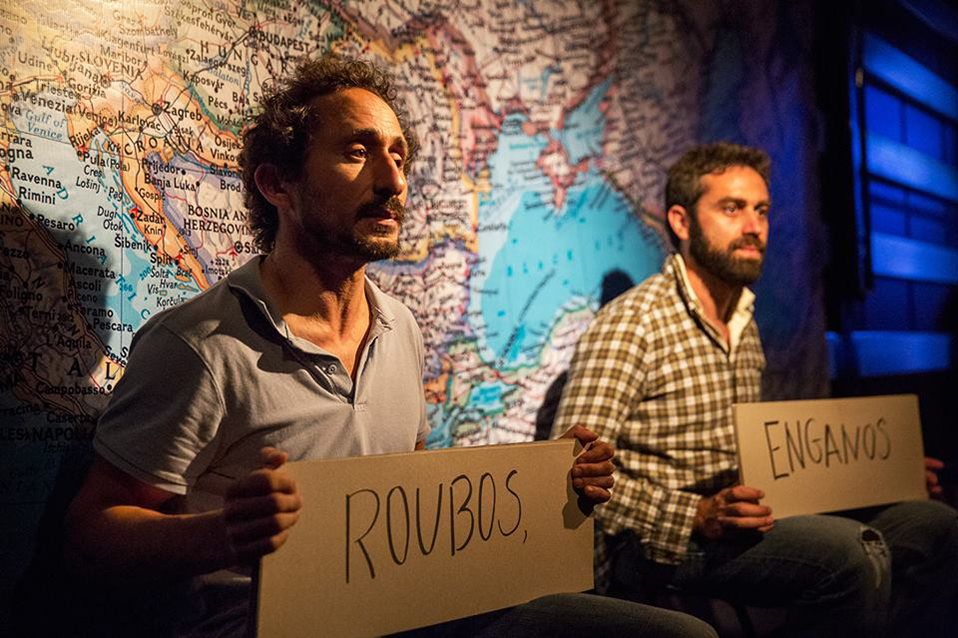
+Culture
A play, a circus show, a film, a work of art, there are countless cultural manifestations that mark Patinter's support to culture. As promoters of culture, we work with different areas of cultural expression, through the support of projects that value artistic production, the broad access of the community to culture and the emergence of new talents.
In 2015, Patinter in partnership with Teatro Viriato, of which it is a benefactor, and Teatro do Vestido, brought to stage the play "Viajantes Solitários". Built from an extensive collection of life and 'road' stories of truckers, the show explores the poetic possibilities of these lives of permanent displacement, lives also of miles of loneliness, of physical distance from families, of passages, of fleeting nights, of a geographical knowledge of highways, national roads, roadside restaurants, hotels.
A show that is a kind of manual of a singular traveller, at the same time speaking of that Portuguese restlessness that we know well - that of leaving; and, being outside, the will to return, to leave again, impelled by that thing that pulls us to travel kilometres, after kilometres, after kilometres, continuously.
It is currently touring the best venues in the country.
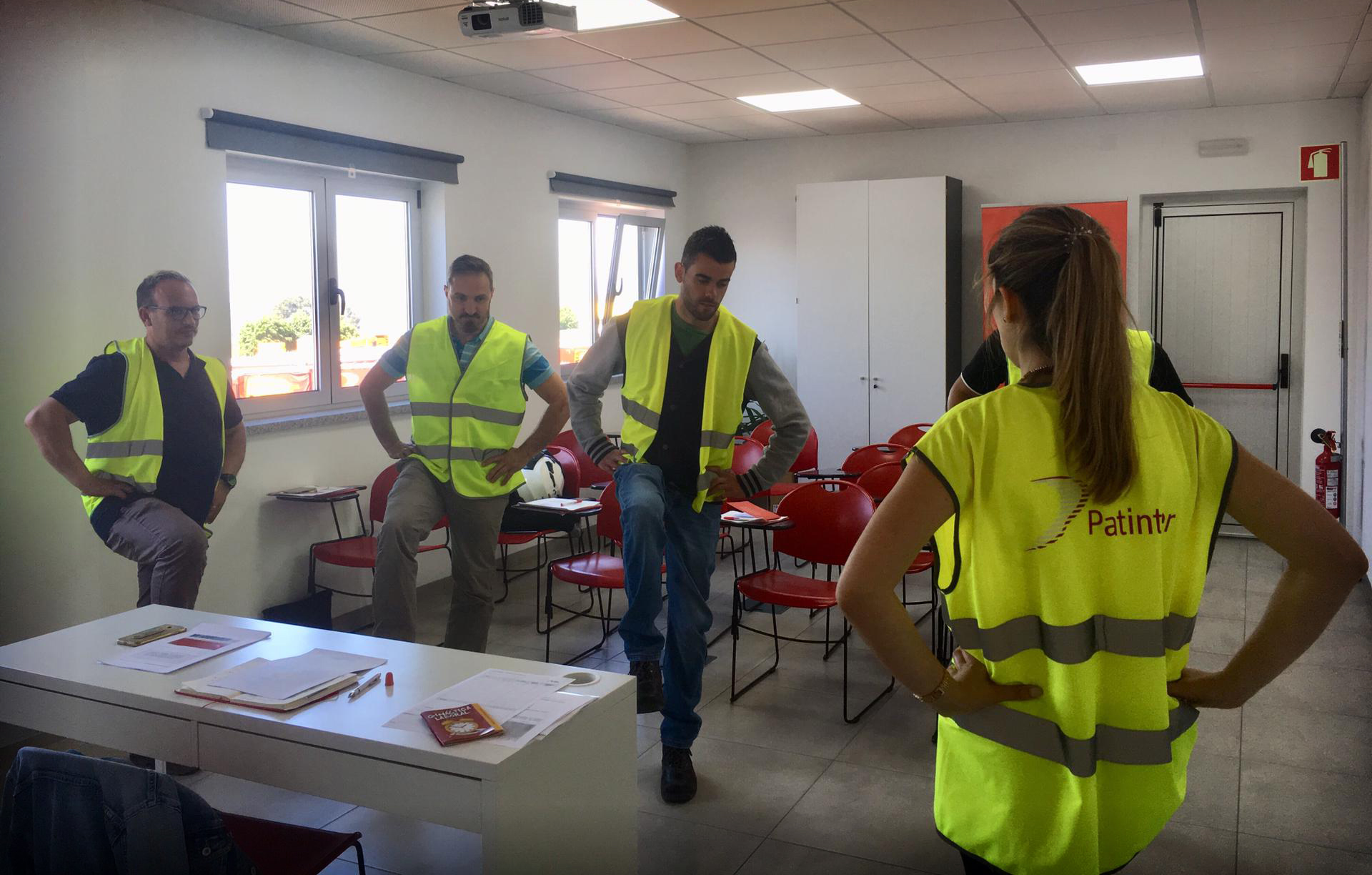
+HEALTH
WellCare Project - Well-being and Quality of Life at Patinter
The WellCare project, created and developed by Patinter, was designed to promote the overall well-being of our employees. Focusing on health, balance, and satisfaction, WellCare aims to provide a safe and pleasant work environment where every employee feels valued and in harmony.
Inspired by the philosophy of the World Health Organization (WHO), which defines health as "a state of complete physical, mental, and social well-being, and not merely the absence of disease or infirmity," the WellCare project adopts a holistic view of the individual. Our commitment is to guide employees on a journey of life appreciation, encouraging the adoption of healthy habits, functional behaviours, and attitudes that maximise each person’s potential.
The WellCare project operates in four key areas: Curative and Preventive Health, Ergonomics, Physiotherapy, Workplace Exercise, Psychology, and Nutrition. These focus areas have been strategically chosen to ensure that each employee has access to the necessary resources for a healthier and more balanced life, both within the workplace and beyond.
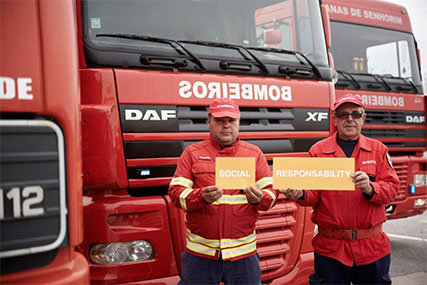
+SOCIAL
Patinter - A Strong Commitment to Solidarity and Social Responsibility
At Patinter, we believe that a company’s success goes beyond financial results and is truly measured by the positive impact it has on society. That’s why we integrate and lead various social solidarity projects, taking an active and dynamic role in supporting institutions and causes that promote well-being and human dignity.
Recognising the importance of caring for the most vulnerable, Patinter is actively involved with institutions that provide care and support to children, as well as nursing homes for the elderly. These partnerships are essential in promoting social inclusion, offering resources and assistance that improve the quality of life for children and seniors, often in situations of abandonment or loneliness. Our dedication to these causes reflects our commitment to building a more just and equitable society.
Our social responsibility also extends to volunteer fire brigades, where we provide material and logistical support to help them continue their vital role in protecting our communities.
In addition, we collaborate with various local associations that develop community support and assistance projects. These initiatives range from social inclusion, education, and health programmes to the promotion of cultural and sports activities that strengthen the social fabric and foster a spirit of solidarity. Our participation in these projects reflects not only corporate responsibility but also our deep commitment to society.
+DIVERSITY & INCLUSION
At Patinter, we are daily committed to inclusion as a way of working, as well as to the promotion of a fairer and more equitable society. As an employer, we assume equal opportunities and welcome all employees, regardless of their nationality, religion, gender, age or sexual orientation. For us, each person is unique and should be respected for their individuality, because we believe that it is based on the defence of diversity that we trace a more assertive route towards a better world, free of prejudices and stereotypes.
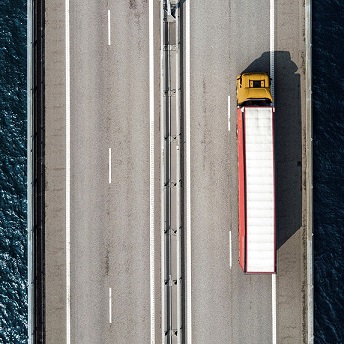
+SAFETY
Road safety is at the base of Patinter's DNA.
As one of the main European players, Patinter sees road safety not as a measure, but as a culture and a way of being on a daily basis. Constantly evaluating and searching for actions to reduce the number and severity of road accidents, the company gathers all available means to protect what it considers essential: the life and health of its employees and all those who cross paths with them on the road. This bet has demonstrated for several years that it is a winning policy, since the number of accidents and their associated costs have been decreasing, attesting to the credibility of the service provided and transmitting confidence to its clients, partners and all those who travel on the road.
"We believe that the implementation of the Road Safety Management System and its certification by ISO 39001 helps us to formalise and systematise this commitment, serving as an example for other companies in the sector. We seek to contribute positively to the image of the transport sector, promoting the culture of safety and valuing the driver's profession."
Measures and actions:
1) Development of a diagnosis to verify the existing practices and procedures in the company (e.g. timely preventive maintenance, purchase of vehicles with driving support systems, etc.) and preparation of the respective report;
2) Revision of the system documentation in accordance with ISO 39001;
3) Creation of a Safety Committee to monitor, analyse and discuss road accidents and hold meetings;
4) Adoption of a detailed investigation procedure for road accidents and the drafting of a model Accident Investigation Report (including an Action Plan)
5) Initial and continuous training in Road Accidents and Safety, Defensive Driving, Cargo Securing, Safety and Health at Work;
6) Establishment of a Road Emergency Plan to guarantee response in the event of a road accident - holding a road accident drill to test emergency response;
7) Measures to increase the field of vision while driving and reduce and signpost blind spots - placing of angle film to widen the field of vision, placing of blind spot signposting stickers (French legislation), creation of mirror adjustment guide;
8) Revision of the practical initial training procedure (test drive) and assessment of the learner driver's driving style - analysis of the learner's profile according to defined criteria;
9) Reduction in the maximum speed limitation of vehicles - setting the speed limiter at 88km/h instead of 90km/h
10) Information campaigns
11) Recognition of drivers with zero accidents.






